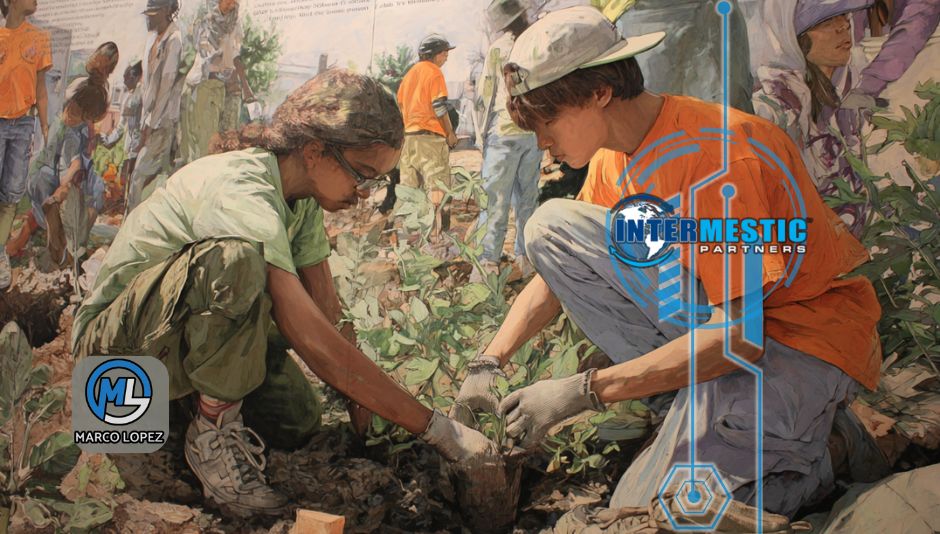Unlocking Potential—How Smarter Immigration Policies Could Fortify Social Security and Medicare
- Marco Lopez

- Feb 23, 2025
- 3 min read

Immigrants play a crucial yet often overlooked role in supporting Social Security and Medicare. Many pay billions of dollars into these programs every year but remain ineligible to collect benefits later on. For instance, it’s estimated that in 2013 alone, undocumented workers contributed about $13 billion to Social Security—funds that help keep the system afloat without ever returning to those who paid in. As America’s population ages, creating clear pathways to enable long-term participation by immigrants could bring greater stability to these vital programs.
Immigrants Already Contribute—Even Without Benefits
Current rules mean that many immigrants, particularly those without a path to lawful status, pay Social Security and Medicare taxes through payroll deductions but can’t claim benefits. Seasonal agricultural workers, for example, often pay into the system for years. But if they never gain a valid Social Security Number, they won’t have access to retirement or disability benefits in the future.
At the same time, policymakers regularly highlight how more immigration can help address labor shortages and boost Social Security’s solvency. In the 2023 Social Security Trustees report, the 75-year shortfall is projected at 3.61% of taxable payroll under mid-range immigration assumptions. Under a high immigration scenario, that gap drops to 3.21%. But with low immigration, it grows to 4.02%. Simply put, more workers paying into the system would help close this long-term funding gap.
Why Formalizing Contributions Matters
When immigrants don’t have a clear path to legal status, their ability to fully participate in the economy becomes limited. Employers may resort to paying workers off the books, or employees might use falsified documents—both of which create less reliable revenue streams for Social Security and Medicare.
A transparent system, one that includes pathways to legal status, would allow immigrants to work in the open. Both employees and employers would pay into entitlement programs, leading to a steady flow of tax revenue. And by giving immigrants the chance to earn benefits over time, lawmakers can create an incentive that keeps more workers contributing to the system for the long haul.
Possible Policy Pathways
Legalization for Long-Term Contributors: A focused proposal could offer a path to legal status for immigrants who have consistently contributed payroll taxes for a certain number of years. By rewarding a solid track record, these individuals would gain lawful status, eventually qualify for benefits, and keep paying into Social Security and Medicare.
Seasonal Worker “Bridge Visas”: Another approach involves easier transitions between seasonal and more permanent legal statuses for those who meet specific employment and tax requirements. This would reduce the need to work off the books and encourage tax compliance across industries reliant on seasonal labor.
Expanded Employment-Based Visas: Lawmakers could consider raising the cap on employment-based visas for sectors with labor shortages—such as healthcare, elder care, agriculture and construction. More workers in formal, tax-paying positions would bolster funding for Social Security and Medicare while filling critical gaps in the workforce.
The Broader Economic Impact
Reforms that bring immigrants into the formal economy have ripple effects beyond entitlement programs. Secure immigration status often translates into increased consumer spending, higher rates of business creation, and greater investments in local communities. Local and state governments benefit from higher sales and property taxes, which fund essential public services like schools and infrastructure.
Conversely, leaving immigrants in a state of legal uncertainty stalls potential growth. When people work in the shadows, tax revenues, consumer spending, and opportunities for innovation all suffer. In turn, businesses that rely on immigrant labor face more risk and uncertainty, compounding labor shortages in key sectors.
Building a More Resilient Future
Social Security and Medicare might seem like static institutions, but they depend heavily on the strength of the workforce. Immigrants—who already contribute billions without receiving a penny in benefits—can play an even bigger part in keeping these safety nets strong. By introducing policies that offer clear, consistent paths to legal status, policymakers can secure additional funding streams, maintain a stable labor supply, and ensure Social Security and Medicare remain solvent for generations to come.
Achieving the right mix of fairness and economic sense might be challenging, but when it comes to our retirement and healthcare systems, the argument for more inclusive immigration policies is straightforward. With new contributors on board, these programs can grow more resilient—benefiting everyone who calls the United States home.
.png)




Comments